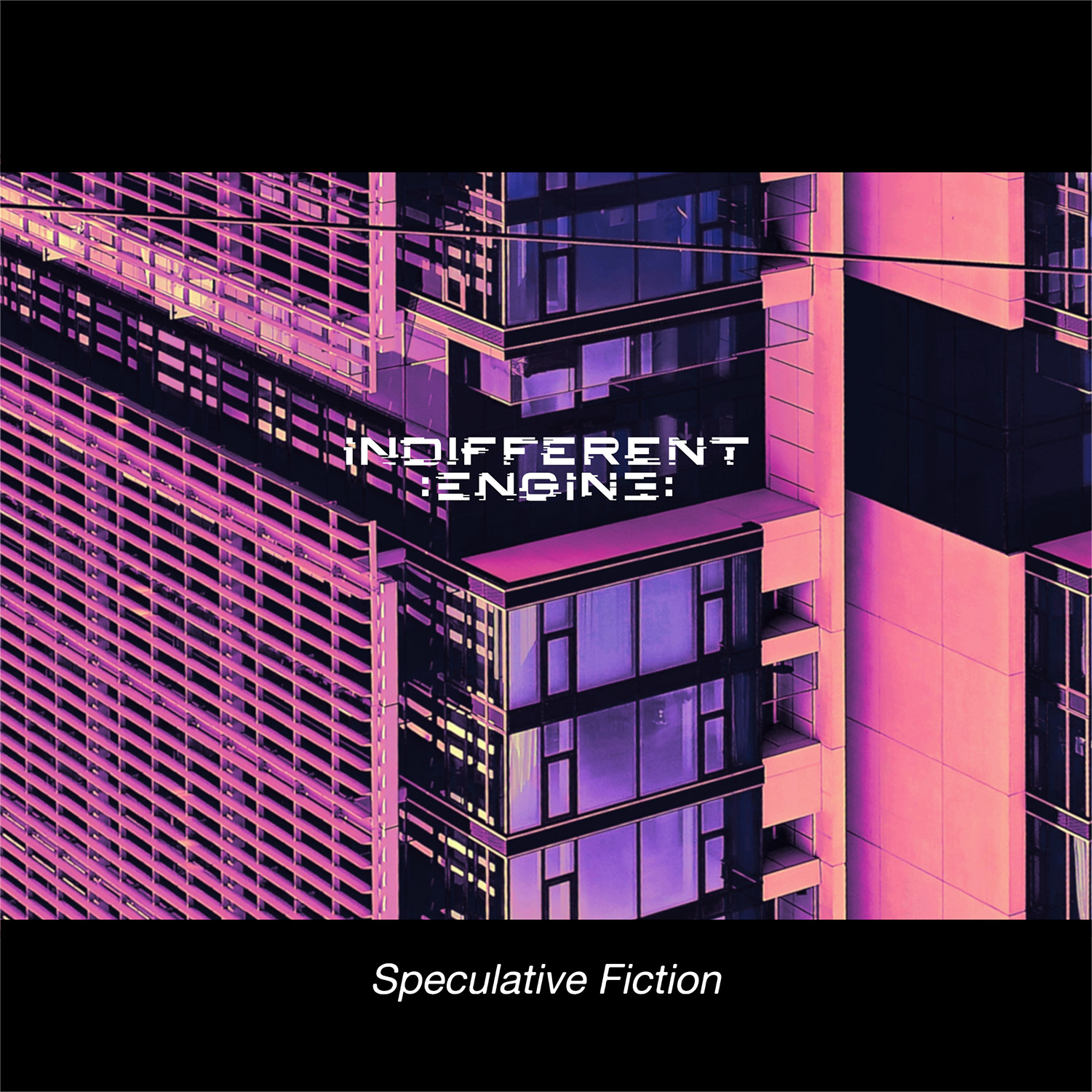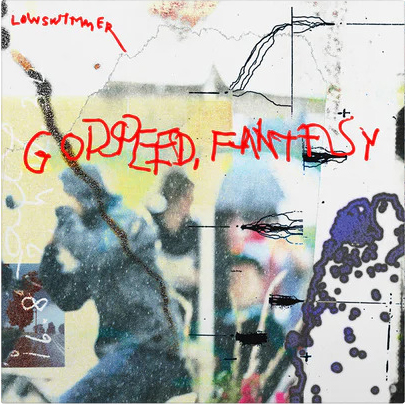
This post was originally published on this site
INDIFFERENT ENGINE are not a band to do anything by half measures. Vocalist Adam Paul established the Cambridge-based five-piece in 2021, looking to move beyond his solo work into new territory. The result is a band steeped in tempestuous post-hardcore, a blistering assault on the senses that in their live shows leaves nothing on the table, physically or emotionally. Debut album Speculative Fiction serves as a statement of intent, a band eager to demonstrate the breadth of their potential.
It’s a slow-burn start to proceedings with opening track The Waiter – a wash of slow-tempo looping synths and soft vocalisations for the first few minutes, erupting into a crash of power chords and thunderous screams. It’s over almost before it begins, bit-crushing filters distorting the final notes. First single Crashing Into A Hillside In The Dead Of Night immediately punches up the volume and pace with frantic guitar lines and Paul‘s hardcore screams. He displays strong vocal versatility across the track, ranging from visceral screams to belted choruses and softer singing. The vocals are compelling throughout the entire record, even with a more detached lyrical style.
Follow-up Lifetime Achievement Award is a tour de force, Paul‘s panicked cries pouring out in a stream of consciousness, rapid in delivery and dripping with emotion. The band’s live shows often feature Paul charging across the stage, smashing the microphone against his head and openly weeping. The recording and mix lose none of this energy. Credit must go to the guitar work – there’s a sonic debt here to forebears like AT THE DRIVE-IN and TOUCHÉ AMORÉ in riff-craft that is both melodically rich and chaotically unpredictable. The song concludes with samples and feedback, an extended chance to inhale and emotionally process all that has come before.
There is, of course, more to INDIFFERENT ENGINE than fast-paced post-hardcore. Pylon Cult slows the tempo, letting the bass once again be the rhythmic driving force. Reverb-drenched guitars and the impeccably paced vocal delivery elevate this to something essential. The languid, spacey Bitcrush follows, the longest track on the album. There are shades of post-rock in the convergence of instrument snippets and distorted vocals into a coherent musical narrative. It’s a smart way to maintain the intensity without sonic exhaustion, earning its huge outro and the audible sobs at its close. For an album possessed of such emotional catharsis and aggression, there is a lot of space left for introspection.
What’s interesting about Speculative Fiction is the way that the band’s genre influences morph as the album progresses. The chaos of their post-hardcore energy refines into something melodically clearer, more confident but no less intelligent, across the second half. Second single Crescents is a straightforward hardcore punk song if you look past its 5/4 time signature. It strips back the sonic trickery of earlier tracks for pure power chord energy, bouncing the listener along, Paul‘s vocals leaning more on cleaner textures. Verdigris instead veers into alternative territory, its opening glistening guitars spiked by a nu-metal bassline, darkening the palette. It repeats a typical pattern of leaving a minute of calmer space at the end of the song, which is effective for most of the album, but borders on indulgent by this point.
The final full-length track Primrose & Acetate almost qualifies as a punk waltz. It certainly feels closer to that late 2000s emocore sound, playing bright and catchy guitar lead lines against staccato rhythm and bass. The vocals here dance in a call-and-response between screams and the most conventional singing on the record, giving the song a fist-in-the-air, anthemic feel. In lesser hands, the genre swings would feel incoherent, a band throwing all of their ideas into the bucket; it’s to their credit that this reads instead as an evolution. Rather than leave the album finishing on the clean arpeggios and vocal reprise of the chorus, it gives us The Captain, a return to the distorted pedal effects over the same phrase, but with Paul screaming his heart out. It’s a final refusal of that evolution, a reminder that this is a vehemently post-hardcore record. However, its brevity makes it feel like an afterthought rather than a fitting close.
There is an awful lot to like about Speculative Fiction. Few bands can adeptly mix full-throttle hardcore energy, frenetic math-rock structures, hooks and clever sonic crafting at this level of consistency and quality, much less for a debut offering. It’s a heavy record to absorb, even with its moments of introspection and space, but its vitality and excitement are compellingly moreish, particularly in the live-wire vocal delivery. Fans of post-hardcore will not be disappointed.
Rating: 8/10

Speculative Fiction is out now via Church Road Records.
Like INDIFFERENT ENGINE on Facebook.
The post ALBUM REVIEW: Speculative Fiction – Indifferent Engine appeared first on Distorted Sound Magazine.



